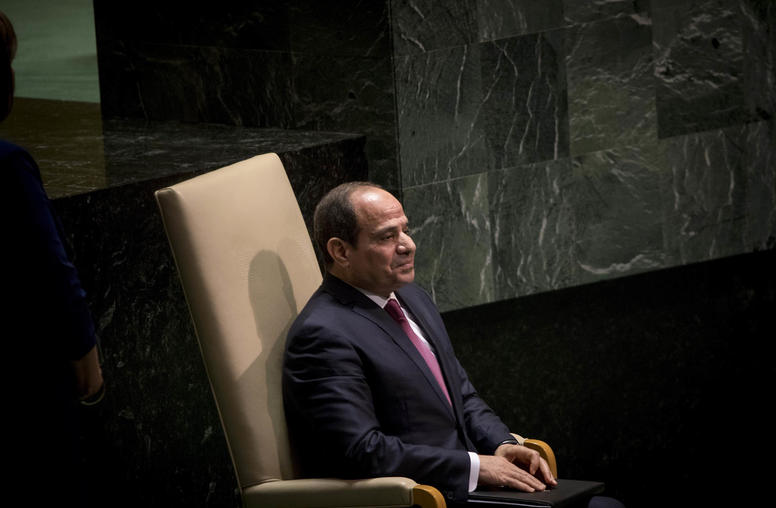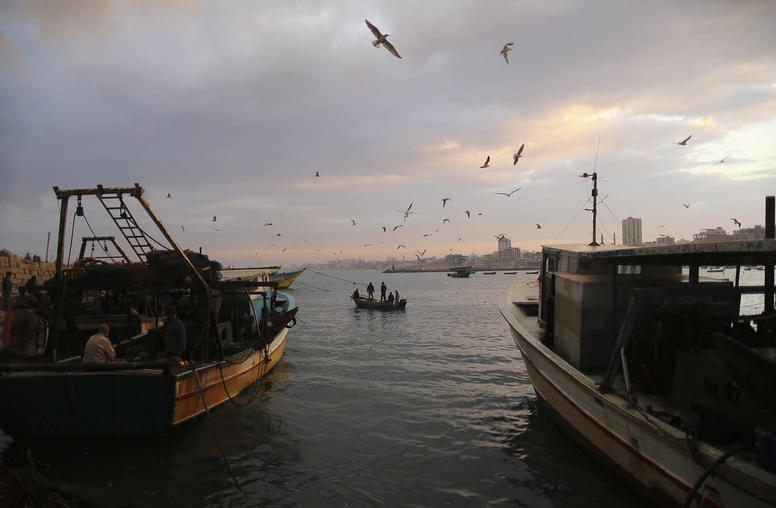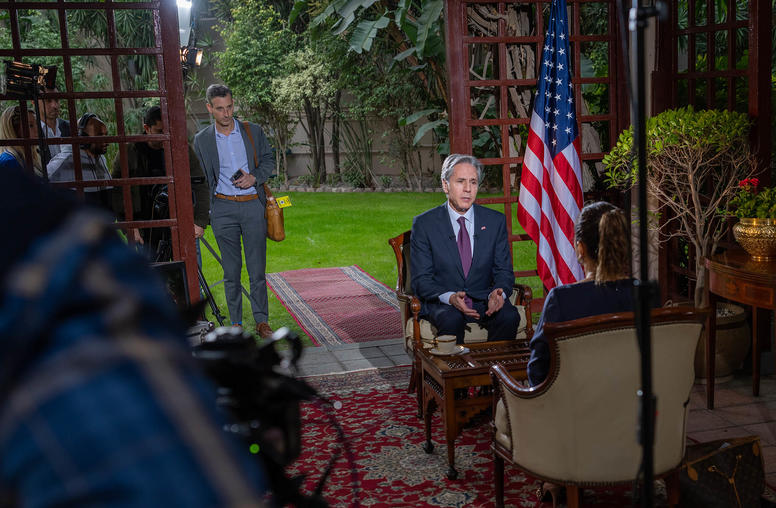The Impact of Social Media in Egypt
Last Friday, Internet access was cut off and mobile phone service was severely disrupted in Egypt, according to news reports. USIP’s Sheldon Himelfarb discusses the role of social media in Egypt’s protests, and how it compares to other recent media-connected movements.
January 31, 2011
.jpg) Last Friday, Internet access was cut off and mobile phone service was severely disrupted in Egypt, according to news reports. USIP’s Sheldon Himelfarb discusses the role of social media in Egypt’s protests, and how it compares to other recent media-connected movements.
Last Friday, Internet access was cut off and mobile phone service was severely disrupted in Egypt, according to news reports. USIP’s Sheldon Himelfarb discusses the role of social media in Egypt’s protests, and how it compares to other recent media-connected movements.
- Everyone is talking about and tweeting about the role of social networking in the Egypt crisis. Is there a risk that we overdo it and make the Internet too omnipotent and over estimate its potential to cause a revolution?
- What are the benefits of social networking at a time like this in Egypt and elsewhere?
- Read additional perspectives >>
Everyone is talking about and tweeting about the role of social networking in the Egypt crisis. Is there a risk that we overdo it and make the Internet too omnipotent and over estimate its potential to cause a revolution?
What we’ve seen over the last five days is that change of this magnitude – revolution perhaps – is a function of people and passion, not of any particular technology.
Late last week the Egyptian government took the virtually unprecedented step of cutting off the country from the Internet, and yet protests continue unabated. This is not to say that social networks did not play a key, catalytic role – they did. They are part of a vast web of instantaneous information lines into and out of Egypt that connected the protesters to each other and to the outside world in the run-up to the street protests we’re seeing.
When you ask many of these activists about the role of these networks they will often describe them as a kind of lifeline. And if these networks, communicating via the Internet and mobile phones, weren’t so critical, you can be sure that the government would not have hit the “kill switch” the way it did. This was really unprecedented.
In virtually every other case of new media-connected movements – Tunisia, Iran, for example – the governments were much more moderated in cutting off access, slowing things down, opening them back up, slowing them down.
Egypt really was the first of its kind, in terms of near total blackout for a couple of days – raising all sorts of worrying questions. But the fact remains – the protesting never stopped nor did the media coverage of events.
What are the benefits of social networking at a time like this in Egypt and elsewhere?
The vital flow of information is continuing, due in some measure to these social networks. What’s at work here is really a network of networks. Some are more vulnerable than others. In Egypt, like many places, the people, including the protesters, usually rely on the large centralized services like Gmail or Twitter which in fact are quite easy for the governments to impede.
But the Internet is strikingly resilient because at its core it is, as I said, this network of networks. So activists quickly figure out innovative work-arounds – and if you track the blogosphere right now, you will see this happening – thus enabling this continuing communication with the outside world, as well as between and among Egyptians themselves.
Additional Perspectives
- USIP Tracks the Unfolding Situation in Egypt
Check here for a comprehensive look at the situation in Egypt. - Former U.S. Ambassador on Initial Days of Protest
By Daniel C. Kurtzer, former U.S. ambassador to Egypt - Shibley Telhami on Egypt
By Shibley Telhami, former USIP Board Member (2000-2002) - Egypt Today: Historical Context of the Protests
By Qamar-ul Huda, senior program officer, Religion and Peacemaking Center of Innovation - Read more: USIP Tracks the Unfolding Situation in Egypt



